“A hard-working entrepreneur who runs a restaurant and retail outlet, Jim hopes to retire while he is still relatively young and live off the income from his rental properties.
Jim and his partner Bethany live with their toddler in her home in small-town Alberta. He is 43, she is 38. Jim also has a 12-year-old child from a previous marriage.
Jim’s short-term goals include buying four more houses – the ones he has are in Alberta and British Columbia – paying off his mortgage debt and perhaps forming a holding company if it makes sense. Longer term, he wants to retire comfortably at age 50 and leave something for his children.
Jim is doing well, bringing in $10,000 a month before tax from his businesses. He estimates his share – he has partners – is worth $750,000. Bethany, who keeps her personal finances separate but contributes to joint food and housing costs, earns $75,000 a year before tax.
On paper, Jim is looking good. He has $3-million worth of investment real estate. Still, he is mindful of the other side of the balance sheet – the $1-million-plus of mortgage debt, which he hopes to have paid off by the time he is 55 or 60.”
—
“So can Jim retire at age 50?
Jim figures he will have his mortgage debt paid off by the time he is 55 or 60. His financial picture at age 50 is less clear. As well, Jim doesn’t have a firm handle on how much money he will need when he retires. In his application, he lists “spending money” of $2,500 a month or $30,000 a year after tax.”
—
“Jim is taking home $84,000 a year from his businesses now plus another $12,000 in net rental income, for a total of $96,000. If he sells his share of the businesses for $750,000 and invests the proceeds at 4 per cent a year, he will be making $30,000 a year before tax. When calculating how much Jim might need in retirement, the adviser uses a rule of thumb of 70 per cent of preretirement earnings, which in Jim’s case would be $67,200 before tax. Thus his revenue properties would have to generate at least $37,200 a year after operating expenses to make up the difference, substantially more than the $12,000 a year they are throwing off now.”
—
“Monthly net income: $8,000
Assets: Bank accounts $25,000; stocks $50,000; TFSA $25,000; RRSP $25,000; RESP $10,000; six rental houses $3-million. Total: $3,135,000
Monthly disbursements: Mortgage $900 (his share of $1,800); other housing costs $790; car lease $500; other vehicle costs $390; groceries $250 (his share of $500); child care $900; clothing $300; gifts, charitable, other $150; vacations, travel $200; dining out, entertainment $250; clubs, sports $150; grooming $50; doctors, dentists $250; drugstore $100; cellphone, Internet $200; RESP $200; TFSA $400. Total: $5,980
Liabilities: Mortgages $1,062,000; car loan $17,000. Total: $1,079,000”
– image and excerpted text from ‘An entrepreneur’s path to early retirement’, Dianne Maley, Globe and Mail, 14 Dec 2012 [Hat-tip Makaya at VCI]
—-
Jim and Bethany have accumulated a net-worth of over $2 Million ($2.75 Million if he were able to sell his share of his business), by the age of 43, on a household income of less than $200K before tax. This is remarkable. It is highly likely that a large portion (almost all?) of their gains are due to the increase in the paper value of the six rental houses that they own. This would also explain their desire to “buy four more houses” – this sector has treated them well and they expect it to continue to do so.
As others have pointed out in the G&M comment section, simply liquidating all of their assets and investing in conservative instruments would already possibly spin off enough income for them to be able to retire soon.
A disastrous outcome would be the use of their equity to buy even more RE at the very peak of a nation wide speculative mania in housing. Worse still if they are tempted to use leverage by increasing their mortgage debt. This is the way that many with impressive paper gains on RE holdings, at this point in the cycle, will give them back (and in some cases even be wiped out) in the coming market weakness.
As an aside, note the misallocation of resources that comes with the speculative mania: in this case we have a couple considering leaving the workforce in their 40’s.
– vreaa




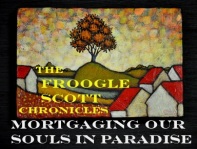






















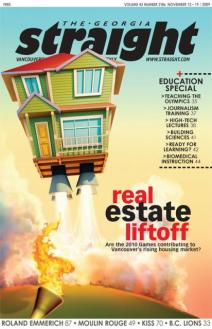



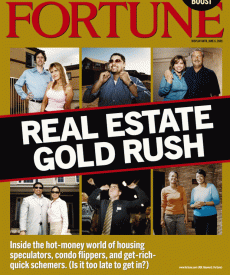
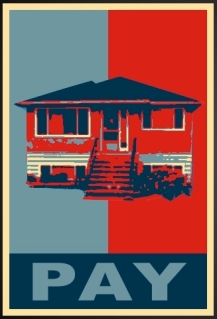
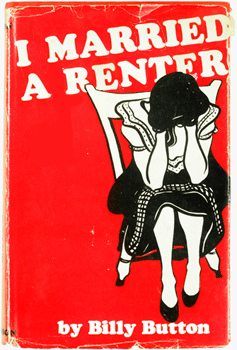
Normally, Jim and Bethany should be no further ahead than if they had put their savings into any number of other investments. However, for the past ten years (likely covering the majority, if not all, of the period over which they have bought houses), real estate has appreciated at abnormally high rates. Hence their “wealth”. Unfortunately for them, they don’t recognize that this appreciation is unsustainable and destined to reverse. Worse, they are not meaningfully diversified. Other than their business interests and some relatively small positions in cash and stocks, their “portfolio” consists of a single asset class. “Don’t put all your eggs in one basket” — so simple, so time-tested, so widely ignored.
P.S. I must be missing something… The six rental properties are producing just 12K annually in net rental income?
No doubt the rentals are something to keep him busy when he retires.
$12k seems rather scant for net income on a $3MM portfolio at only 30% LTV.
Yep, he’s making a grand total of 0.4% income (net) on the rental properties (gross). Smart investment decisions always pay off in spades…
If he has to replace a roof or do any major repairs, he’s in the hole for that year and, with any decrease in the property values, will likely have to postpone retirement until he is in his 80’s. At that point he will probably be doing plumbing and repair work just to keep himself busy, never mind the constant hassle of trying to keep the places occupied.
It sounds like he got into the real estate market a while ago (prior to the Alberta boom of ’06) and rode the increase in prices so that his balance sheet looks really good on paper. I also suspect that some of the money or real estate may have been an inheritance that provided the seed capital for our amateur slumlord.
Since I refuse to pay for the G&M, what was the advice given by the expert financial advisor? Did they advise maybe they should sell and diversify? Did they point out that the net rental income is too low for the value of the properties?
“He could start by drawing up a schedule of mortgage amortizations for his rental properties showing “the amount and timing of cash-free income,” Ms. Bryan says. “This is critically important because the revenue property income will be supplementing his investment portfolio income if he sells his businesses.” The schedule will help Jim determine whether he should add to his holdings or do some judicious pruning.”
Use Incognito mode like everyone else.
Do tell….
If you’re using Explorer, go into “Tools” and use “InPrivate Browsing”
Ninja/yvr -> Regarding the $12K income from 6 rental properties worth $3MM (a spectacular yield of 0.4% p.a.):
I’d bet that the $12K is what he declares as rental income to the CRA, the rest being lost in a few legit, and a substantial number of grey, ‘expenses’.
—
There are so many ways that the prudent tax-paying citizen has been screwed by this mania.
How so in this case? He is in first loss position, it’s hard to see how lenders won’t make money off him at 30% LTV. Regardless a ‘bubble’, he would have avoided taxes.
The 12k may in part be due to management fees.
Sometimes you’re a bit too suspicious. This guy runs a restaurant, a store and the rentals. The chances that he isn’t going to be audited about once a decade approach nil. He’d be a fool not to be reasonably conservative in his bookkeeping.
The $12k likely refers to his net cash flow after expenses (hopefully after repair and maintenance). Remember, he’s also paying down the mortgages on those properties, and that’s profit (which he has to pay tax on every year) even though it isn’t cash flow. If he’s got the properties on short amortizations, he could be paying them down quite quickly.
We don’t know where the properties are (small town Alberta and small town BC, presumably), how long ago he bought them or how many units he has. We also don’t know that much of his net worth is from real estate; as an entrepreneur, it could be from one of his other current or previous businesses, or even an inheritance. He IS terribly concentrated in real estate, but he has a lot of equity, so if his cap rates are decent and the locations aren’t too bubbly (more or less the same thing!), even that isn’t as big a risk as some are taking. In short, we don’t have enough facts to pronounce.
No matter how you slice it, a 0.4% yield is terrible, and screams overvaluation. I would liquidate now; so low a yield cannot and will not last.
We don’t know his yield because we don’t know his amortizations. We might suspect, however, that he’s a conservative real estate investor. He has $3mm of property with a $1mm mortgage, and he WANTS to buy more, i.e. hasn’t yet. Graduates of the REIN school of all-in would be far more levered than that, assuming their creditors allowed it.
True, but his yield is not the point. The point is that a buyer today would be getting 0.4%, which is an utter pittance. Jim should lock in what could be a once-in-a-lifetime discrepancy between price and value. Then, take the sale proceeds, diversify, and achieve his financial goals.
We don’t know what today’s buyer would earn, either. The article didn’t give enough numbers, nor enough facts that we can make reasonable guesses at the numbers.
If he were aggressively amortizing the reported income would be higher. Income would before paydown. Agree the article has some missing data.
I can’t agree El Ninja. The goal here is to have rental income. Lets keep in mind that while housing stock may decline by double digits in some jurisdictions that is not necessarily going to be the case with rents.
As usual it is worth looking to the US for guidance where there was an initial hit to rental prices at the height of the housing collapse. This was due in part to a contraction in the number of households, a decline in new home formation and a large surplus of vacant buildings.
We have seen though that rents recovered fairly quickly relative to the assets that were supporting them. Rents are rising. This has been very fortunate for those able to buy discounted properties while insuring that those who held on during the crisis could still balance the books.
There is no urgency to selling if rental income can justify the combination of mortgage expenses, maintenance and related fees. It is only the the potential decline in the value of the asset that is problematic but if the investment is long term this is not an issue as housing will eventually recover (I agree it could take a decade though).
I am also in disagreement with Vreaa’s comment that this represents a misallocation of resources where a young person intends to leave the labour force early in life. It is because the individual is doing so based on investments and has already clearly demonstrated a talent for business development that I object.
Not everyone is an employee.
He may be overweight real estate but he has done well and is a success. Let’s not be too quick to judge. Can many others on this board lay claim to bringing home 10,000 monthly income from business sources of their own design?
Farmer -> Fair points, let me clarify: what I mean is that, if a speculative mania in housing (or in anything else, in fact), leads to a potentially productive member of society reducing activities that have been useful for that society, this represents one of the misallocation of resources that results from bubbles.
Note that I’m not saying that Jim doesn’t deserve to do what he wants with his wealth; just pointing out that in more typical times he would not have fortuitously accumulated so much wealth so early (I’m perpetuating my initial assumption here that his $3MM wealth is likely due to RE price run-up, fully aware that I may be incorrect in that regard), and he would likely have had to continue as a business-man (employing people, supporting the local economy, paying taxes, etc etc) for a decade or two longer.
This behaviour is closely related to other similar misallocations of resources: young people who would have become teachers becoming roofers or realtors or flippers, doctors retiring early on the gains of speculation, etc etc.
Certainly I am in agreement with you there, Vreaa. Real estate speculation has distorted the economy and diverted scarce resources from productive endeavors into “easy money” gains on the back of artificial wealth creation. Good people were lost in this environment and talents were wasted. I just don’t know that we can generalize our objections to every case as some are clearly business oriented and so merit a different analysis.
–> Farmer.
The goal is to have income, not necessarily rental income. There are any number of excellent income-producing instruments available to Jim and, in the interest of diversification, I think he should explore them.
I agree that if Jim waits long enough, he can ride out the ups and downs in the market. The same can be said about most any poor investment. The issue is that Jim hopes to retire in just 7 years, which is not long-term, and therefore he should get his finances into a safer position soon, if not immediately.
Certainly Jim has done well in his business, but a talent in one area of business doesn’t imply talent in another, and his “success” in real estate could be due more to chance–in the form of massive market appreciation–than savvy. (See vreaa’s poker analogies). Lots of brilliant businesspeople have gone on to lose it all in some other, ill-timed venture. Had Jim began his real estate strategy in the U.S. in 2005, would you be calling him successful and talented today?
Quoting from the article: 6 rental properties, valued today at $3MM, producing $12K in net income.
what’s the question here?
…. can Jim retire at age 50?
I got news for Globe and Mail, Vreaa, and Jim. You can retire any time you want. But first, you must be out of debt. That’s it, that’s all. No bills or payments, and you’re free. Cash flow calculations like the one above are useless these days, and can’t be trusted even a few months out.
“Thus his revenue properties would have to generate at least $37,200 a year after operating expenses to make up the difference, substantially more than the $12,000 a year they are throwing off now.”
How the next paragraph should have looked like:
“I have advised him to sell his investment properties immediately paying off the mortgage and leaving him with roughly $1.75 million (assuming $250K in capital gains) which can be diversified in various instruments netting 5% after tax with virtually no risk. This would provide about $85K in after tax income a year and when combined with other savings will allow him to retire comfortably when he so desires while eliminating the risk of downside in the real estate market.”
Beautifully put.
You folks are as bad as the paper’s analyst. How about he sells two properties of the six, retires the mortgages, frees up $60k a year in cash flow, saving him the significant transaction costs and capital gains taxes that selling the other four properties would have entailed, and lives happily ever after?
I feel like a broken record here, but here goes: 0.4% yield. Less than half of one percent. Would still be pitiful if it were triple that. As for transaction costs and capital gains, they will have to paid at some point, so are a non-issue.
Oh well, the market is made by differences of opinion. Only time will tell…
You sound like a broken record, too. 0.4% yield is less than the principal portion of his mortgage, so if that number was true, he’d be cash flow negative at 33% LTV. So I believe that number not to be true. I’ve spelled it out in my comments above, and another commenter reached a similar conclusion in the G&M comment section.
You can assume this guy to be a complete moron even though he’s an apparently successful businessman, or you can assume a modicum of intelligence on the part of all monied players in this scenario and trace back through the numbers to come up with a likely scenario.
You are completely missing the point – in this market there are almost no investment properties that are making as much money as a balanced low risk portfolio. Keeping ANY of the properties is costing him money.
You are actually recommending he keeps basically his entire net worth in real estate (keep 4 of 6 * 3 million = $2 million which matches his net worth) – sure, that is better than 150% of net worth and much better than most people around here who are probably at 1000%+ but still a horrible plan even in a stable market.
Additionally, at around $2 million net worth (with $3 million in real estate holdings) he is far from the clear. A 30% drop in value would lower his net worth to closer to $1 million which would eliminate his plans of early retirement. In 7 or 8 years the $1.75 million will become $2.5 million + his savings from work and they are laughing.
Again, I don’t care if the $12K/year in rental income profit is accurate – all that is important is whatever the amount is, it is less than he could be making in an essentially risk free portfolio.
I’m not missing any point. There’s no “this market” that has been specified here. Where I live, and likely where you live, there’s no residential rentals with decent yields except rooming houses, large apartments and student rentals. However, if you peruse ICX in the hinterland, you’ll find that there’s lots of stuff with decent yield. Without the numbers, we cannot assume that this guy isn’t making 7% or 8% on his money, because there are places where properties sell at those rates, even today. Which means that “sell now” in a place like that likely means “spend a year trying to sell and take a haircut, plus transaction costs, only to reinvest in something with similar yield.”
He is saying his return is $12K per year which on $2 million is 0.6%. The advisor is telling him he needs to be up to $38K/year which is under 2%. Obviously he is not making 7 or 8%. Also “Sell Now” doesn’t mean liquidate all property immediately at whatever price you can get – you’re getting creative with the counter arguments to try and defend your point.
Maybe you believe what you are saying or maybe you just don’t want to admit you are wrong since you came in with insults but at the end of the day he currently has 150% of net worth in investment real estate making a paltry return and his retirement and financial wealth he has accumulated is now needlessly at risk with any sort of downturn.
Come on, this is such a no brainer, you must be pulling my leg or something
$3mm property, $1mm mortgage, $12k/year “net rental income,” hopes to have the mortgages paid off in 12-17 years. Feel free to come up with likely scenarios, but “is making 0.4% on his money” isn’t one of them, unless he can’t do math, in which case perhaps the Globe’s advisor might have pointed that out.
I’ve spelled out everything already, including the big, honking fact that we DON’T have enough information and can’t assume much from what we have.
N.B. Lukacs says he’s a partner in the real estate, but I read the article to mean he’s a partner in the restaurant and retail only.
As usual, lots of great points Ralph. You are speaking my own thoughts here and I agree with your point of view.
–> Ralph (and Farmer)
To your point that Jim may be making 7-8%. For that to be true, he would had to have paid about $170K for properties that are today “worth” $3MM ($12K / 7%). How realistic is that?
To your point that he shouldn’t bother selling, because he would probably get a comparable yield elsewhere, you’re missing one crucial detail: the amount of capital generating that yield. The capital that Jim invested is earning him $12K. However, if he sold now and netted $2MM ($3MM minus $1MM mortgage), then reinvested the proceeds at your assumed rate of 7%, he would be earning $140K!
If you read all of my posts on this page, I’ve spelled out just about everything.* I’m not sure what exactly I’ve said that you don’t understand. If you have a specific question, or there’s something I’ve said that you don’t agree with, we can talk about that. Perhaps thinking about the saying “when you rent, you’re paying your landlord’s mortgage” would clarify things? Let me know how I can help.
* I didn’t cover depreciation, but I don’t think it’s an issue in the Globe’s analysis.
–> Ralph
Kind of you to offer, but I don’t think you’re in a position to help. Before you can give out tutorials, you need to brush up on basic concepts like risk vs. return, diversification, and opportunity cost.
You’ve offered to talk about specific points. Well, I made one in my previous post, and you didn’t address it. If you are not truly interested in furthering the discussion, fine by me. I will make one additional comment, though. You have tried to dismiss some posters’ arguments by citing a lack of information in the article. Simultaneously, you have based your own arguments on various inferences and assumptions. Namely, that Jim is likely a “conservative” investor (and bookkeeper!), and that his cost basis for these properties could be a whopping 17x lower than current market prices. So, when it supports your argument, making assumptions is fair game, but when it doesn’t, a different standard applies?
He could be buying dogs and rehabbing them in order to raise future rents. This would account for the low current cash flow.
Even in today’s low yield environment a .4% yield is obviously signaling missing information.
Regardless, the article leaves something to be desired. No mention of the asset or liability of his personal abode though it is included as a monthly expense.
The majority of those advising him to sell would have given the same advice 5, 8, 10 years ago.
Maybe he doesn’t want to retire on $85K/yr. He might be aiming a little higher than you would in his shoes. But then you wouldn’t be in his shoes, you’d be in yours.
You’re absolutely right, blammo. I would have. The guy’s got over 90% of his net worth in one asset class. If you think that’s wise, best of luck to you.
If you seek outsized returns, yes, you need to concentrate your assets. Conservative investing results in conservative returns.
Agreed, blammo. The flipside, of course, is that conservative investing results in conservative losses. As Jim is planning to retire, and is going to need safety of capital, he’d be wise to remember this…
Yeah. See the poker analogy on yesterday’s thread; same thing.
Or to use other forms of gambling as an analogy (simplified, yes, but you’ll get the point): If somebody goes to the roulette table, puts everything on black, wins once, then does the same thing again, then again, (repeat), and is now sitting on large winnings… Would you argue that their investment strategy has been a good one?
No, you wouldn’t. True, cowboys get lucky sometimes, but the secret to surviving and thriving with your investments /finances is not to be a cowboy.
Perhaps all the owners of apartment buildings should quickly sell their investments too then….are you suggesting that? Who might then be the landlord class?
I see a clear distinction between a business owner who invests with purpose and one who is a mere speculator hoping for a flip. If I have read this article correctly I cannot come to the conclusion that this guy is some weak minded fool who is in hock to the gonads and hyped up on hope and a thin rayer. The man is an investor and far be it for us to render criticism despite his shallow margins.
The bear case for real estate does not apply here.
At current prices, owners of apartment buildings should (try to) sell their holdings.. but this rush for the exits would quickly lead to price drops to levels at which fundamentals (yields) make sense, and at which we would recommend that those who hadn’t yet sold should hold!
In other words, there will always be a landlord class, but wise investors, at these price levels, would do far better cashing out.
Starting with an undervalued asset circa 2000, we have:
– accommodating central bank
– positive immigration
– favourable immigration quality (high net worth)
– increasing density
– commodity-based economy within inflationary environment
– minority government seeking majority
– population leery of equities
– favourable geographic location
Some people would call this an environment rich with potential for asset appreciation. Others would call it gambling. To each their own.
“Some people would call this an environment rich with potential for asset appreciation”
Funny, I bought all my US equities in the winter of 2009. Given all the tinfoil hats making calls about the end of civilization I put two and two together and, realizing they were full of it and that the US Fed had near-limitless power to expand balance sheets, I bet the farm on a rebound. Boy was I right. I have more than doubled my money.
Good thing, in hindsight, I was so smart.
Good for you YVR. Don’t be afraid to post your next trade here in real time. I’ll look out for it.
There were, in hindsight for some, fundamental reasons for the run up in CDN RE over the last decade-plus. To call all the players mindless gamblers is re-writing history to suit your position.
I don’t doubt some over-extended late comers will get hurt in the next correction but I don’t think this guy will be one of them.
–> Blammo
Hindsight is 20-20. Choose any point in history and you can dig up reasons to have bought or sold.
But let’s look at your list. Of the eight factors you cite, I believe perhaps one is directly linked to the massive run-up in real estate prices we have witnessed over the last ten years: an accommodating central bank. A second possible factor is a population leery of equities. Every other factor has either always been present (commodity-based economy, geographic location, etc.), and is therefore not relevant, or is of only marginal importance (minority government, high-net worth immigration).
What’s missing from the list, and by far the most important driver, is the speculative mania in real estate… fuelled by human emotion and hence totally unpredictable. So, yes, I think going all-in on real estate was a gamble.
“Don’t be afraid to post your next trade here in real time. I’ll look out for it.”
I would, but you know I’m full of sh!t. 😉
I’m never certain of anything with you YVR, you are as cagey as they get. Cheers.
We will agree to disagree El Ninja. When it comes to investing I am a fan of one measurement above all. Money.
El Ninja, long post but some great points to consider from Paul Tudor Jones:
13 Insights From Paul Tudor Jones
1. Markets have consistently experienced “100-year events” every five years. While I spend a significant amount of my time on analytics and collecting fundamental information, at the end of the day, I am a slave to the tape and proud of it.
2. I see the younger generation hampered by the need to understand and rationalize why something should go up or down. Usually, by the time that becomes self-evident, the move is already over.
3. When I got into the business, there was so little information on fundamentals, and what little information one could get was largely imperfect. We learned just to go with the chart. Why work when Mr. Market can do it for you?
4. These days, there are many more deep intellectuals in the business, and that, coupled with the explosion of information on the Internet, creates an illusion that there is an explanation for everything and that the primary tast is simply to find that explanation. As a result, technical analysis is at the bottom of the study list for many of the younger generation, particularly since the skill often requires them to close their eyes and trust price action. The pain of gain is just too overwhelming to bear.
5. There is no training — classroom or otherwise — that can prepare for trading the last third of a move, whether it’s the end of a bull market or the end of a bear market. There’s typically no logic to it; irrationality reigns supreme, and no class can teach what to do during that brief, volatile reign. The only way to learn how to trade during that last, exquisite third of a move is to do it, or, more precisely, live it.
6. Fundamentals might be good for the first third or first 50 or 60 percent of a move, but the last third of a great bull market is typically a blow-off, whereas the mania runs wild and prices go parabolic.
7. That cotton trade was almost the deal breaker for me. It was at that point that I said, ‘Mr. Stupid, why risk everything on one trade? Why not make your life a pursuit of happiness rather than pain?’
8. If I have positions going against me, I get right out; if they are going for me, I keep them… Risk control is the most important thing in trading. If you have a losing position that is making you uncomfortable, the solution is very simple: Get out, because you can always get back in.
9. Losers average down losers
10. The concept of paying one-hundred-and-something times earnings for any company for me is just anathema. Having said that, at the end of the day, your job is to buy what goes up and to sell what goes down so really who gives a damn about PE’s?
11. The normal progression of most traders that I’ve seen is that the older they get something happens. Sometimes they get more successful and therefore they take less risk. That’s something that as a company we literally sit and work with. That’s certainly something that I’ve had to come to grips with in particular over the past 12 to 18 months. You have to actively manage against your natural tendency to become more conservative. You do that because all of a sudden you become successful and don’t want to lose what you have and/or in my case you get married and have children and naturally, consciously or subconsciously, you become more conservative.
12. I look for opportunities with tremendously skewed reward-risk opportunities. Don’t ever let them get into your pocket – that means there’s no reason to leverage substantially. There’s no reason to take substantial amounts of financial risk ever, because you should always be able to find something where you can skew the reward risk relationship so greatly in your favor that you can take a variety of small investments with great reward risk opportunities that should give you minimum draw down pain and maximum upside opportunities.
13. I believe the very best money is made at the market turns. Everyone says you get killed trying to pick tops and bottoms and you make all your money by playing the trend in the middle. Well for twelve years I have been missing the meat in the middle but I have made a lot of money at tops and bottoms.
Fair enough, blammo. I’m more of the John Bogle and Warren Buffett schools, but each to their own. But as they say, the market is made by differences of opinion. Agree though, money is the measurement!
I think he should buy four more houses. Four, not five and certainly not 3. 10 is a nice number of rental properties to say that you have. You could say 11, but what extra benefit do you get by saying 11 over 10? Very little. His friends will say, wow 10, now he’s done something with his life, he’s a certified real estate expert. 10 really is the ultimate goal here.
Hey, why stop at ten? I once met a real estate “investor” who “owned” 40 properties. Oh wait, he went bankrupt… in the middle of a housing bubble, no less.
Yes and REITS are a big waste of time, Right? Ever hear of starting small and working your way up? I really don’t see the problem here. Do you honestly believe that everyone who invests in property as a class is going to go broke?……how would you explain all the commercial landlords in this country?
It is just a short jump from owning 10 rental homes to being the owner of an apartment building. Shall all investors cease their acquisitions to satisfy the bear camp?
If you can make the numbers work there is no problem whatsoever with owning for the purpose of rentals in my opinion. This guys risk profile looks low to me despite the lack of strong yield. There is no reason why he should not continue to expand on his idea if he can justify the cost based on incomes.
–> Farmer
I am going to overlook your sassiness and stick to substance.
You might give my comments a closer read. What I have said is that a buyer of Jim’s properties today would be getting a roughly 0.4% yield, which on a risk-adjusted basis is absolutely terrible. I would not invest under that scenario. This doesn’t mean that owning rental properties can’t make sense. As vreaa says, there will always be landlords, but for a new landlord to come in and put up fresh capital, and for that landlord to be adequately recompensed for their risk, prices need to come down in relation to rents.
A buyer of Jim’s properties today, under one interpretation of the numbers given in the G&M, would, if he put in place the same financing as Jim (or assumed Jim’s mortgages), be getting a 0.4% cash-on-cash yield. There’s plenty of deals where that is reasonable and, if the numbers worked, I myself would do a deal at that rate.
I think too much attention is being focussed on the current yield as well, Ralph. What is misunderstood here is that this man is acquiring property on the basis of its ongoing revenue stream.
It is therefore neutral as I see it. Not high risk.
Over time he will build a portfolio of homes without the necessity of utilizing more of his own cash than the initial downpayment. We don’t know how much down payment he put into the places in any case but if rental income can generate a clear-title multimillion dollar portfolio over time he has not wasted his efforts.
The assets themselves are the valuable property.
Whether they rise and fall in value over the course of the period of the mortgage is not really an issue either as long as they pay their way in the meantime. This is important. At some distant point these properties will throw off an income stream mortgage-free. It is why a good case can be made for acquiring rentals even during a falling market.
Are they not then valuable in the end?
The obsessive focus on .4% yield misses the point entirely. It is like seeing a big dog but only noticing the flea on his back. Some days I really cannot understand the thinking of other posters here. Don’t they understand fortunes are made even during difficult times of low yield? Only a collapse of the rental market will derail this guys plans. That is extremely unlikely to happen. We all need to get a grip here. Rents are the difference between making and breaking in this business and low yield aside there is still a case that warrants continued investment.
Thanks for backing me up, Farmer. Usually, rental real estate discussions are populated by hopeless optimists who forget about maintenance costs, vacancy allowances and even property taxes. It’s been an odd few days here on the other side of the mirror with people who don’t tumble to an amortization schedule.
Thanks for all the recent discussion, El Ninja and Farmer ->
I can’t speak for all of those who have been concerned about the apparent low yield in the case of this anecdote, but, as one of the many who pointed it out, let me share my perspective: Sure, I get the very attractive idea (and the central point in the traditional approach to RE investing) of putting down a modest downpayment, having the rents pay the mortgage and other expenses (having the tenants “pay your mortgage”) and, then, in ‘x’ years owning the property outright, and then enjoying the benefits of its income stream. The point about the very low yield here (and in almost all other Canadian RE investments at this time, most obviously in the LML), is that it signals that the property is overpriced, and will likely be available for purchase at some point in the relatively near future for a far lower price.
Thus, even the investor who has the sole aim of setting up a future income stream from a basket of RE holdings would be better off selling, waiting, and re-buying a similar basket at what will be a substantially lower price.
Criticism of the low yield is not a criticism of building a portfolio of income producing properties, rather, it questions the best use of the market value of the assets at the present time.
I do think Ray makes an excellent point about the complete arbitrariness of the ‘ten’ goal. It suggests that Jim doesn’t really do math much, which is not that reassuring.
Jim turns a profit, Vreaa. His math is better than you are suggesting.
Do you mean his 0.4% yield?
No, I was referring to his business income. He is no fool. While I agree we are in an deflationary environment where assets are concerned there is also a case to be made for stealth inflation where rents are concerned.
We are now seeing absolute drops in the prices of homes in Vancouver and other regions. Who is getting a rent price reduction though?
Look at the US where rents are on the rise despite the fact housing crashed. That is an interesting phenomenon without a doubt.
You know I am almost always in agreement with you where housing is concerned and I respect your opinions. You have made many excellent observations in the past and I have only rarely commented on them when I supported your point of view. This is just one of those rare times when we see things differently.
For the record I happen to think you are a very balanced analyst
Farmer, for me the guy’s plan is no problem but the scant income is a bit odd. If he is to be a property baron with a large property portfolio he seems, on first brush, to not be caring too much about its income stream.
I don’t know the specifics of this dude’s investments but I do know the specifics of others with multiple properties. The concern I hear is one of disbelief at the accumulation of expenses and bad tenant flares that can occur. If he is looking to retire off 12k net on 3m book it’s going to be a tough slog for him. Or put another way, there are many multiple owners who have been getting by but are in actuality poorly managed and surviving off deferred expenses.
One thing not mentioned in the article is how he will come up with the downpayment for the 4 more properties he wants to buy. If he is going to sell his share of the business and put that all into real estate, he would be all in real estate, with his minimal RRSP’s and stocks. Scary.
He also mentioned a previous marriage, but nothing in the expenses category for that. Maybe he had a really good lawyer.
I picked something up off craigslist from a rental house yesterday, the place was garbage dump, literally could not see 1 square meter of the floor in the living room that wasn’t covered with crap.
Amateur landlording is not all that glamorous.
2 million on black.
Hah, did not see VREAAs poker analogy above, lol.
Agree with El Ninja. 0.4% is pitiful for 3M. If I had 3M in cash to play with, I’d be able to retire right now. Thankfully, I’m halfway there already at age 32 due to non-RE investments (other than my house).
Good for you, Brian!
For some reason I chuckled at this.
Half-way there at 32. Nice work.
wow, 1.5m at 32, very impressive. You should have your own investing firm.
I don’t know where this guy’s properties are, but in Vancouver or Toronto, 3 million dollars of real estate consisting of 6 properties does not rent for 12 grand a month.
Even in delta/surrey area, 2 grand/month in rent gets you 4 and 5 bedroom, 2 or 2&1/2 bathroom single family homes, places that are listed for $600K or more. If he’s in a rural or small town area, I find it strange to imagine that renting a house in the middle of nowhere is more than it is in suburban vancouver…
as I understood it is 12 grand a year after expenses
Owning and renting in small towns is far more lucrative than doing so in the more speculative markets at this time. Rents are stable and in many cases compare favourably to large markets. Tenants also tend to be longer term. On the issue of yield I think it is understood that it is net of all loans, interest costs, maintenance and related expenses. .
You people don’t seem to understand that Jim is a partner in the real estate investment. Some information is missing from the article so there is some ambiguity. Assuming Jim has a one sixth share of the investment ($750,000 of $3,000,000 – or perhaps $750,000 of $2,000,000) he’ll have one sixth of the net rental income, $12,000 of a net $72,000 annual return on the rental properties.The six rental properties aren’t generating a net rental income of $12,000 a year. Not possible.
The article makes it clear that Jim himself owns the $3MM properties.
It’s the businesses (“a restaurant and retail outlet”) where he has partners and where his share is estimated to be $750K.
Also is not possible to spend $500 a month for groceries for 3 people – two adults and a toddler.
I disagree. I see people in the grocery stores all the time who are spending more than that.
I don’t think we’re reading or writing well today..
It’s the weather.
Too subtle? How about “I’m living proof.”
Ralph: I think Olga means it is not possible to spend as *little* as $500 to feed two adults and a toddler.
And Ralph, I meant that the weather is effecting *all* of us, so don’t take it personally, at all. Your contributions here much appreciated, as are almost everybody else’s.
I never considered myself an extreme shopper or anything, I don’t clip coupons, just shop the flyers every week, avoid most prepared foods and stock up on things we use when they’re on sale. I’m starting to think my grocery bill is two standard deviations below the median…
@Canis – that’s correct.
@Ralph Cramdown – you mean that you could feed 2 adults + 1 kid (healthy food) for less than $500 a month? It is off the discussed topic, I just meant to point that the overall quality of the artcile’s quoted data is low.
Yes, I’m feeding a family of 3 for that. Here’s the factors:
– We live in the Centre of the Universe, rather than the Best Place on Earth. On casual inspection, your food prices are higher (eye-poppingly so if you buy everything at Whole Foods as some of you do) but I don’t know how much as I haven’t figured out where the deals are in Vancouver.
– I’ve got a rotation of about 4 stores whose flyers I watch. Most weeks, I check the flyers, see what I need, and drive to the two stores with the best overlap. Sometimes, there’s walking trips. If I just bought everything at the grocer that’s walking distance from my home, we’d be years behind in our goals.
– I know what a freezer is for. Beef, pork, chicken, seafood cycles through it, not just ice cubes and FCOJ.
– Very few prepared foods; we cook everything from scratch. This isn’t ideological, it just comes from being cheap and not having a taste for all that salt and stuff. And no organics.
– The bad: My wife likes glass bottles of carbonated water from 1/2 way around the world. An expensive, pernicious habit. My son likes canned salmon. We’ve recently switched from sockeye to pink, but if sockeye comes down in price or goes on sale again…
Writing this makes me feel cheap, but we don’t eat cheap. I’m continually amazed at the totals rung up by others in line at the cash register but, as a shareholder in a few grocery stocks, I say go for it!
I am amazed at how little perspective people have on food and the associated costs of consuming highly processed meals. It is still possible to eat very, very well on an economical budget if you make more of your own food day to day.
More rewarding too and better tasting. The biggest opportunity for savings for most people may lie in adjusting their diets to more traditional cooking and ingredients .Nobody really wants to hear that though. They are so busy shopping the globe for their favourite tastes that most have lost the connection with what we used to eat in this country.
Think root vegetables, pickles, preserves, fresh killed chicken, home canning, mixed grains and beans as examples. Too boring! Does anyone else out there know how to cook sugar beets?
You know….if the trucks ever stopped coming up from Mexico or California most people in this country would starve to death. I would challenge just about anyone to try a tradional cold climate diet exclusively for a month.
Start by forgetting all the fruits and vegetables that come from abroad including all the meals that include them in the ingredients. Kick out mangoes, oranges, most fruit juices, papaya, banana and fresh salad ingredients. Forget about anchovies, sardines, tuna, lobster and crab if you are inland. Don’t even dream of Chinese snow peas, Japanese oranges or imported exotic cheeses.
You will still survive. Actually our Northern diet is pretty good and is very rich in proteins, oils, vitamins and minerals. It is wholesome and nutritious. The problem is almost nobody eats according to our region anymore. We are spoiled by the selections from abroad; by the profusion of oils, sugars and artificial ingredients that are a joy to our senses and our tastebuds.
Only old people seem to recall what our diets were like prior to the advent of the supermarket and the globalized economy where anything of interest could be had cheaply from four corners of the planet. A book could be written on what a traditional diet in Canada is really all about.
Would many here be ready if we had to return there? What if global shipping were closed due to terrorism or acts of war?
What then?
Farmer ->
Not sure if you saw them, but we recently had two back-to-back posts/discussions about local food supplies and the ALR that may be of more than some interest you!
“Vancouver has a finite amount of land. The prices are only ever going to go up.” – Douglas Coupland, 2000
VREAA 10 Dec 2012
Avocados and Christmas Trees – Vancouver Land Use; ALR; Food
VREAA 11 Dec 2012
Thanks Vreaa, I did see those threads but chose to let them roll without added input. They were great to be honest and I really enjoyed reading the debate that evolved. I don’t post often anymore but it is a rare day I miss reading your site. Cheers.
Farmer-> Thanks. Your contributions here are always genuinely appreciated. Keep well; all the best for 2013.
—
PS see my comment above re the apparent low yield issue.
Thank so much Vreaa. Merry Christmas to you as well.
I live in AB. There is big money in rentals in some AB towns like Lloydminister, cold lake and Lac La Biche…..oil money.
This is quite possibly a real rate of return, I have many landlords with negative returns. I’ve consulted with many owners and told them to sell including some large ones. http://www.icx.ca/PropertyDetails.aspx?&PropertyId=12664027&PidKey=1144493201 I used to work in this building, the price was reduced $1,000,000. The owner was losing 12K per month. I told him to stop trying to do the impossible and get the hell out.
FYI the restaurant is a cash kind of business in many cases so this owner may well be doing much better that it seems on paper. It’s good for such business owners to own other businesses that can absorb that kind of fishy income. Cash flow is not the only goal in real estate investing. These properties may well be chosen for other benefits, such as large development lots or strategic location or a number of other reasons.
One thing all my owners have in common though is the obsession they have with checking how much their neighbors house is selling for so they can congratulate themselves on how many paper gains they have made.